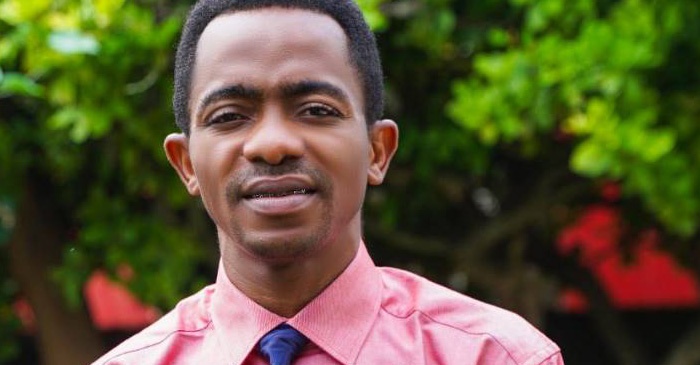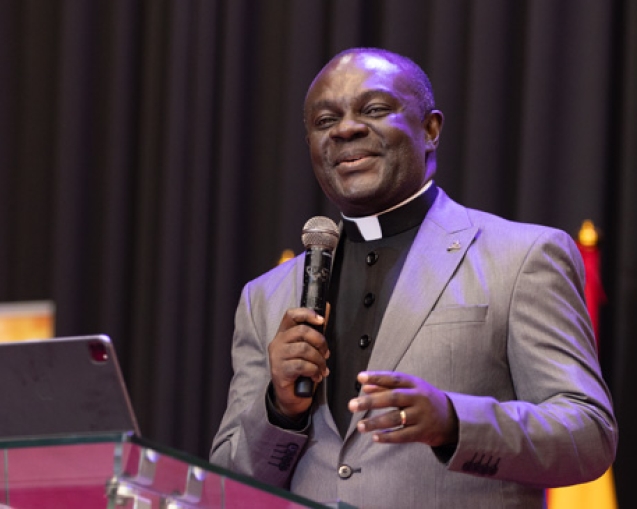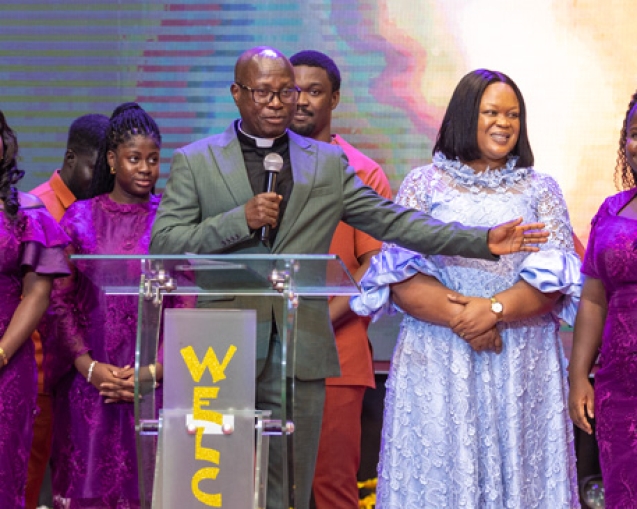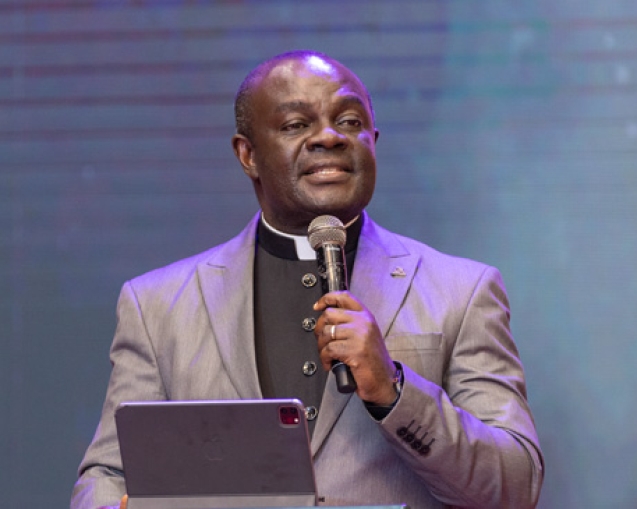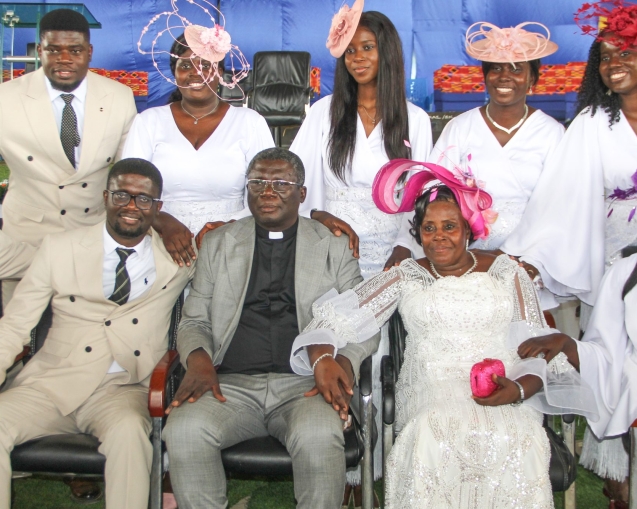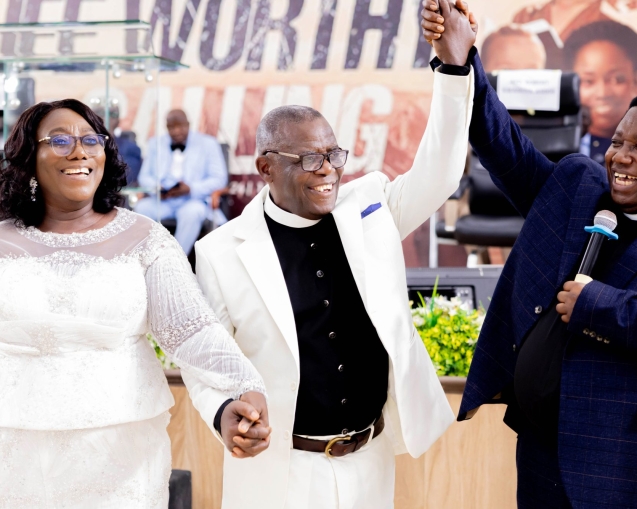Ten years after the birth of Pastor James McKeown, the founder of The Church of Pentecost (CoP), the World Missionary Conference (WMC) sat down in Edinburgh and, as it were, saw no hope for the progress of Christianity on the African continent. Africa, including Ghana, where the CoP is headquartered, has been regarded as a backward people group whose spirituality has no preparatory ground for the Gospel. It was predicted that Africa would rather be Islamised. God to whom mission belongs proved them wrong to teach a lesson that the Gospel is powerful and able to save all manner of persons, and turn all cultures to Christ.
Not too long after that conference, Christianity began to rise, rather exponentially, in Africa. Sixteen years later, at another missionary conference in Le Zoute, Belgium, the importance of Africa was recognised. Some Africans began to own the Gospel and express it in forms that respond to their religious aspirations. Their presentation of Christ in the African context was nothing but welcomed by their African brothers and sisters, significantly. Eleven years after Le Zoute, Pastor James McKeown, an Irish middle school leaver, started a journey toward the Gold Coast (now Ghana). His mission was to make known, in the power of the Holy Spirit, Jesus Christ and Him crucified. So impressive was his missionary work in Africa, that the curiosity appetite of many was wetted to start exploring the causative elements of his missionary prowess. Undoubtedly, McKeown but for his skin color, was an African at heart. He was so identical to the African context that no one should classify him with other European missionaries who could not relate adequately to the African religious identity. Integral to his adaptation to Africa was his Celtic background. I posit that elements within the Celtic cultural milieu, that is primal spirituality, which was in confluence with the African worldview, significantly prepared James McKeown to find a home in Africa to extract and make use of the pervading religious gold, making him a connoisseur of missions in Africa.
THE WAY OF THE CELTS
The Celts live in Ireland, Wales, and Scotland. Ireland in particular developed a distinctive expression of Christianity in the time during which the heartland of Christianity shifted from the Greco-Roman world to Northern and Western Europe where the “Barbarians” dwell. As has been the case throughout history, when the Christian faith shifts, it carries along features identical to its old context even as the gospel interacts with the culture of its new haven. The Europeans assimilated Greco-Roman culture that heavily impacted Christianity, and also expressed the Christian faith per their own spirituality. The Celts exemplified this most excellently.
During the time that the Roman Empire was in prominence, much of Europe, Britain inclusive, was a Roman colony but not Ireland. They were isolated geographically at the time of the transmission of the Christian faith in Europe. Meanwhile, the Celtic society was primal. Therefore, the Celts developed a Christianity that is distinctive from the influence of Roman civilization and power. A unique Christianity emerging as a result of the interaction between the Christian faith and primal spirituality is an important phenomenon seen in the pilgrimage of the Christian Gospel into primal societies in Christian history.
Like the Celts, the worldview of the Africans is also primal. That is, the people believed in the wholeness of life as spiritual. This sense of the spiritual is intertwined with their everyday life and nature, and it informs their religion. The Christianity that emerged from there was influenced much by this primal understanding of life. It was a vibrant Christianity.
The Celtic society upholds the ethos of community as is seen in the African appropriation of the concept of Ubuntu. With respect to its politics, there are a number of kingdoms that are ruled by kings. There were kinship groups, clans, and family units. Meanwhile, these kingdoms meet together annually. The Celts were economically self-reliant. The inhabitants are tall, fierce warriors who show courage but are hospitable. Per their religion, there is a belief in the afterlife, and ancestors hold a special place as is also seen in Africa. Furthermore, kings are held to have a mediation role between humans and the Divine. There are a number of divinities that are believed to exist in the community. Concerning the foregoing discussion, it is apparent that a conversation between the Celtic and African societies would reveal integral similarities per primal spirituality. Significantly, one who has been shaped by the Celtic way of life would not find himself lost in Africa since the person would have developed adaptive qualities from the former for the latter.
Essential to the Celtic culture is the love for poetry. There is an oral culture that is seen in their love for the artistic use of words. This was to prepare Pastor McKeown who, unusually, permitted Afua Kuma of Obo-Kwahu in Ghana, the mother-in-law of Apostle A. T. Nartey (1930-1990) of the CoP, to use stylish appellations based on the African context in her prayers and praise of Jesus. This testimony of Afua Kuma concerning Jesus Christ whom she encountered in her own context, has become a source of African theological reflections as evidence that Christianity has become a religion of Africa. Pastor McKeown has thus become a missionary who does not clothe the Gospel in western thought forms and pushes it down the throat of Africans.
Another integral aspect of the culture of the Celts is a religion that gives place to religious experts called Druids, a term that comes from the Celtic word for oak. In the Indo-European language, the term means knowledge. It is used to connote knowledge of oak or great deep knowledge. These experts and the role they play originated with the Celts. The oak tree especially is considered as sacred as it serves as the home to spirits in the Celtic context. In Ireland, where the Celts dwell, dwarfs, fairies, and other spirit beings are considered to live in oak trees. Pastor McKeown would not be oblivious to this. This is reflected in his famous allusion to an oak tree. He intimated that he does not want to ‘plant a British oak in African soil.’ I consider this disposition to be central to missionary work in the African context where he skillfully contextualizes the Christian Gospel. No theological seminary taught him that. It was his reception to the leading of the Holy Spirit, first, within the Celtic background he came from, then, in Africa.
A GIGANTIC OAK TREE IN GHANA
Since in Africa, important people are considered gigantic trees within societies and families, considering the importance of Pastor James McKeown in Ghanaian Christianity, it is not far-fetched to see him in this light. He was an impressive figure. He has defined a paradigm for the work of missions which takes into account primal worldview, respect for the culture of the receiving end of missions, full reliance on the Holy Spirit, disapproval of western imperialism (or dominion disposition of the benefactors of missions considering the ‘reverse mission’ of today), self-reliance, mentorship, and the pure message of the cross of Christ. What he has bequeathed to Christianity in Africa and the work of missions continues to amaze Christian thinkers.
He has been nurtured in a Celtic indigenous worldview. The disposition of the Celts to life has enabled them to appreciate primal spirituality. Through oral tradition, the knowledge of his background would be reinforced as he lived in 20th century Ireland. With both parents being Irish, the Celtic understanding of life would be at his disposal. Though he grew up in a Christian home, the marks of the Celtic society would significantly define him. His contact with Pentecostalism would consolidate his primal disposition. Pentecostalism itself has been infused with African spirituality, which is also primal, at the Azusa Street Revival led by William Joseph Seymour, an African-American.
James McKeown would have appreciated the fact that God does not live himself without witness in the cultures of people. His embrace of primal spirituality found great application in Africa. The Celtic attitude of self-reliance that may have been nurtured by how they survived on their own economic activities devoid of Roman dictates in the earlier years, and its passage to succeeding generations, has arguably influenced the mission mindset of Pastor James McKeown. Other factors may have contributed to this as well; like Rufus Anderson and Henry Venn’s ‘Three-Self’ principle which has influenced the work of missions around the world. Consequently, Pastor McKeown encouraged his African brothers and sisters not to depend on foreign aid. The Celt’s sense of community would have shaped his idea of living together. He thus regards the Africans as his brothers and sisters and lived cordially with them. The oral culture, and concept of Druids, among other elements of the Celtic society, have had a significant impact on Pastor McKeown and consequently informed his missionary work in Africa.
CONCLUSION
Pastor McKeown’s contact with Celtic culture through diverse means available to him, has had a significant impact on his missionary work in the African context. I suggest that this is the doing of the Lord, the owner of mission. James McKeown is to be celebrated also because he allowed himself to be prepared by the Lord who by his foreknowledge knew that he (the Lord) has an assignment for James McKeown in Africa. The shadow of missions that McKeown has cast must continue to provide soothing direction to today’s work of missions in and out of Africa. As churches in Africa grow their missions to foreign places, James McKeown’s paradigm must be very much considered. May the fire of missions continue to burn its way into the various nations of the world to bring Christ home to the cultures.
Written by Elder Dr. Stephen Ofotsu Ofoe






